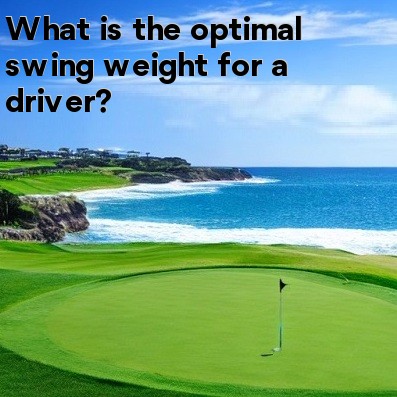
In Golf: What is the Optimal Swing Weight for a Driver?
Golfers are constantly seeking ways to improve their game and maximize distance and accuracy off the tee. While many factors contribute to a golfer's performance, one crucial element to consider is the swing weight of the driver. The swing weight refers to how heavy or light a club feels when swinging. It directly affects a golfer's ability to generate clubhead speed, control, and feel during the swing.
Understanding Swing Weight
Swing weight is determined by the distribution of weight along the length of the golf club. It is measured using a scale that ranges from A0, which is extremely light, to G10, which is extremely heavy. The most common swing weights for drivers fall between D0 and D4, although individual preferences can vary.
The swing weight calculation takes into account both the club's overall weight and the position of the club's balance point, or center of gravity. Adding weight to the clubhead or increasing the length of the shaft will raise the swing weight, making the club feel heavier. Conversely, removing weight or shortening the shaft will lower the swing weight, making the club feel lighter.
Factors to Consider
Several factors come into play when determining the optimal swing weight for a driver:
- Golfer's Strength and Swing Speed: Golfers with greater strength and faster swing speeds tend to prefer heavier swing weights. The additional weight allows them to maintain control and generate maximum power during the swing.
- Accuracy vs. Distance: Some golfers prioritize accuracy over distance, while others focus on maximizing their driving distance. Swing weight preferences can differ based on these individual goals.
- Clubhead Design: Different clubhead designs can influence the optimal swing weight. Certain clubheads are inherently lighter or heavier, and golfers should consider this when determining their ideal swing weight.
Finding the Right Balance
Ultimately, finding the optimal swing weight for a driver involves striking a balance between control, feel, and distance. It is crucial to experiment with different swing weights to determine what works best for your game.
If you find that your shots consistently lack power, a heavier swing weight could help improve your distance. On the other hand, if you struggle with controlling your shots or feel fatigued during a round, a lighter swing weight may be more suitable.
Seeking Professional Assistance
For golfers who are unsure about their swing weight preferences or need expert advice, consulting with a professional club fitter is highly recommended. These experts can analyze your swing, measure your swing speed, and recommend a swing weight that suits your specific needs and abilities.
Conclusion
The optimal swing weight for a driver in golf varies depending on various factors such as golfer's strength, swing speed, and desired goals. It is important to experiment and find the right balance between control, feel, and distance. Consulting with a professional club fitter can provide valuable insights and guidance in determining the most suitable swing weight for you. Remember, finding the optimal swing weight can significantly impact your performance and ultimately help you achieve a more consistent and powerful swing.





